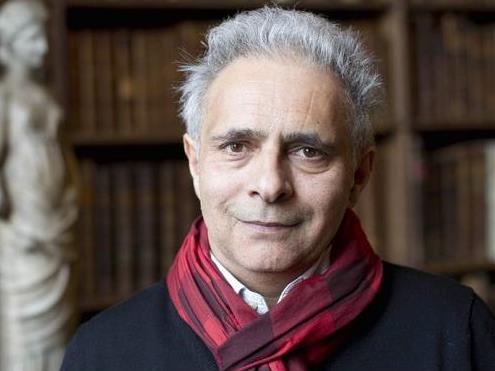A writer writes about a writer writing about a writer. In The Last Word, Hanif Kureishi has joined the long list of writers for whom their own species is an irresistible subject.
From Saul Bellow’s classic, Herzog, to J.J. Abrams’s recently-published Chinese puzzle, S, the troubling grey space between the written life and the lived version has been explored from every angle. It’s a subject that is, at its worst, mere naval-gazing but at its best reflective as well as reflexive.
The Last Word sits somewhere between these two extremes: it is readable and enjoyable, wearing its post-modern awareness lightly and gently nudging the reader towards a sense of its deeper themes. But it lacks the compelling characters that are really needed to carry the reader through what is, after all, a thoroughly familiar narrative line or the originality to provide a valuable addition to the genre.
Our writer, Harry, is a wannabe novelist who has been shanghaied by his unlikeable publisher into writing a biography of a grand aging Anglo-Indian writer named Mamoon. The project is really the dreamchild of Mamoon’s gold-digging young wife, Liana, who promptly co-opts Harry. Our callow writer finds himself living in the great man’s country home, torn between his own idealisation of Mamoon, his publisher looking for a beat-up and the petulant and self-serving demands of Liana.
Kureishi goes some distance to bringing to life the dilemma best explored in Janet Malcolm’s devastating non-fiction work The Journalist and the Murderer, which explores the impossibility of journalism that is faithful to both subject and the writing endeavour. Malcolm’s work is not just about journalism but also about biography and the impossibility of writing anyone’s story.
For a biographer, Mamoon is an unwieldy figure – Indian-born but more English than the English, and thoroughly politically incorrect in matters of both race and gender. Kureishi – who has substantial form in this area – handles the ethnic identity question astutely, particularly in a scene in an Indian restaurant , where the reality of the Anglicized Indian hits up against the expectations of the surrounding culture. He is at his best dealing with the demands of English society to impose an Indian identity on Mamoon.
He is much less successful on the subject of gender. Sexual exploits – both Mamoon’s and Harry’s occupy a good deal of the novel and except for a generalised horniness there seems to be little reason in the choices either of these men makes. There is a tiresome tendency of both men to get in the sack with anything that is available, leaving a string of unresolved relationships in their wake. This may be what some men do but it does not make compelling reading and anything that can be gained by breaking out lasciviousness in the writer’s consciousness was done better a long time ago by Philip Roth.
Even the eminent Roth (with whom Mamoon has quite a lot in common if you switch the Indian ethnicity for a Jewish version) has come under criticism for his portrayal of women, an accusation that is perhaps somewhat anachronistic given the era in which most of the relevant books were written.
But it is less easy to forgive a book published in 2014 for creating shallow women characters who are mere depositories for male satisfaction, scheming fortune hunters or swooning lovers willing to sacrifice anything for a great man.
For the reader with an interest in the impossible challenges of biography, or a particular liking for the books about writing, The Last Word is worth reading. But it fails to reach its potential and toward the end the characters became so annoying I no longer cared what happened to them.
Rating: 3 stars out of 5The Last Word
Release date: 29 February
Softcover
ISBN: 9780571277537
352 pages
Allen and Unwin





